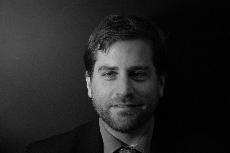The passing of Father Duffy on March 30 was sad and unexpected to me. Although I had only known him for four years, the impression he made was a deep and profound one.
Father Duffy embodied Catholicism’s motto for theology: faith-seeking understanding. He dedicated the majority of his life to exploring the faith and explaining how it made sense in light of today’s world. This outlook accounted for his interest in the relation between religion and culture, faith and science, as well as his long-standing concern for the compatibility between a just God and a world so rife with evil. He was unflinching in the depth and breadth of his (re)search; he knew there was no point in believing if it were not true.
In my capacity as adviser I recommended students to take Father Duffy, no matter the course. Truth be told, I was a bit jealous not to be in the courses myself. His students will remember the regular reading of poems, the surprisingly vigorous lectures by such a frail-seeming septuagenarian and copious amounts of red ink on their papers. Unlike so many academics, Father Duffy was more interested in the question than the answer, and his pedagogy arose there from.
When I first prepared to teach my course on sin I looked up an article that Father Duffy had written on original sin. It remains one of the best scholarly articles I have ever read: elegant prose combined with imaginative insight and theological precision. I formed nearly my entire syllabus around this article. Whenever I teach the course I re-read the article to clarify several issues and remind me of the centrality and implication of original sin for so much of theology, philosophy, psychology and anthropology.
Even in his senior status, Father Duffy continued to be a learner. He did not rest on his laurels; rather, he dutifully kept up with the latest scholarship in his fields, along with his interests in culture, art and politics. In addition to books (one of which, on grace, is used in Rome) and numerous articles, he wrote dozens of book reviews. Such forums are regularly used to heap praise on an old friend or to take cheap shots at another’s work. Father Duffy, however, took this task quite seriously. One of his last reviews was of a massive, five-volume work. What most impressed me, when I read the review, was the care taken to understand the author’s opinion and presuppositions, even if the author himself did not understand them. This practice involves not just intellectual virtue, but moral virtue as well.
Let me expound on this a bit. In our culture we are encouraged to lament how others do not understand us, but the parallel process of listening to the other happens too infrequently. Still, we appreciate when others take the time to understand, instead of simply dismissing us based on faulty signals. There is an academic parallel. So much of intellectual history involves a long series of misunderstandings based more on territoriality than honesty.
Younger and lesser scholars like me owe a tremendous debt to such great teachers as Father Duffy. Here was a man who took the time and made the sacrifices to understand the great thinkers, those with whom he shared both much and little common ground. On the night after his death, I went home and re-read an article he had written about Karl Rahner, one of the last century’s greatest theologians. It was an incredibly clear exposition that could only arise from much labor.
Father Duffy did not spend all of his time in study. His house contained a marvelous collection of local paintings. He regularly invited his more junior colleagues to dinner. He never once let me pay for a meal and was the consummate host. On such occasions, the conversation would often turn to theology. I did not see him in his weakened state but can only imagine that he would have wanted to talk about such things.
I feel terribly sorry for the students who did not have the chance to take his classes. I feel sorry I did not know him longer or engage more in substantive conversations and less in the ones dictated by office life. I feel sorry for Loyola, already wobbly and woozy from “Pathways,” that it has lost a steadying force who embodied the integrity, intellectual honesty and hermeneutical generosity to which any Catholic institution should aspire.
Father Stephen Duffy, pray for us.
Grant Kaplan is an assistant professor of religious studies.







